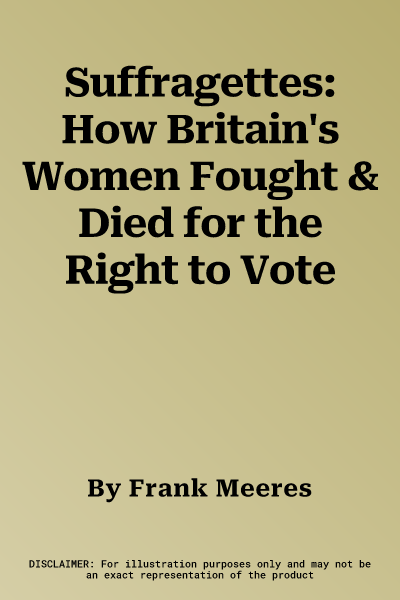Frank Meeres
(Author)Suffragettes: How Britain's Women Fought & Died for the Right to VotePaperback, 1 November 2014

Temporarily out of stock
Free Delivery
Cash on Delivery
15 Days
Free Returns
Secure Checkout

Print Length
169 pages
Language
English
Publisher
Amberley Publishing
Date Published
1 Nov 2014
ISBN-10
1445633906
ISBN-13
9781445633909
Description
Product Details
Author:
Book Format:
Paperback
Date Published:
1 November 2014
Dimensions:
19.56 x
12.45 x
1.52 cm
ISBN-10:
1445633906
ISBN-13:
9781445633909
Language:
English
Location:
Stroud
Pages:
169
Publisher:
Weight:
181.44 gm